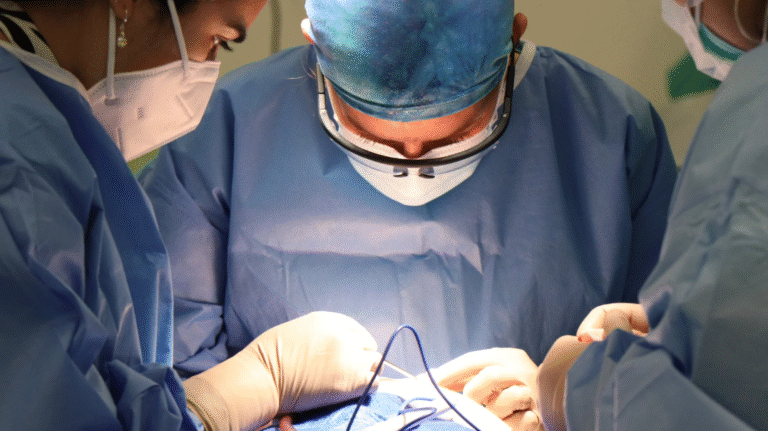Tracking Progress After Gastric Sleeve Surgery: More Than Just the Scale
Successful recovery and long-term outcomes following gastric sleeve surgery depend on comprehensive progress monitoring that extends far beyond simple weight measurements. Many patients who undergo gastric sleeve surgery in Tijuana discover that focusing solely on scale numbers can create unrealistic expectations and missed opportunities to celebrate meaningful improvements in overall health and quality of life. Professional medical teams emphasize the importance of tracking multiple indicators that reflect the complete transformation occurring within the body and mind. Understanding these diverse progress markers helps patients maintain motivation during plateaus while recognizing achievements that might otherwise go unnoticed. Comprehensive progress tracking creates a more accurate picture of surgical success and provides valuable data for ongoing medical care optimization.
Physical Health Markers Beyond Weight Loss
Professional monitoring of physical health improvements provides crucial insights into the effectiveness of gastric sleeve surgery that weight alone cannot reveal. Blood pressure measurements often show dramatic improvements within weeks of surgery as patients begin losing weight and reducing strain on their cardiovascular systems. Cholesterol levels, blood sugar control, and inflammatory markers typically improve significantly as patients adopt healthier eating patterns and lose excess weight.
Sleep quality assessments reveal reduced sleep apnea symptoms and improved rest patterns that contribute to better overall health outcomes. Joint pain reduction and improved mobility become apparent as decreased weight relieves pressure on weight-bearing joints throughout the body. Professional medical teams track these vital signs regularly to ensure patients receive comprehensive care that addresses all aspects of health improvement following surgery.
See also: How Bariatric Surgeons Evaluate Heart and Sleep Health Before Surgery
Body Composition Changes and Muscle Preservation
Monitoring body composition provides valuable information about the quality of weight loss and helps ensure patients maintain healthy muscle mass during their transformation. Professional body composition analysis reveals the ratio of fat loss to muscle preservation, which impacts long-term metabolic health and sustainable weight maintenance. Many patients experience increased muscle definition and strength as they become more physically active following surgery.
Clothing size changes often occur before significant scale movements, indicating positive body composition shifts that reflect successful fat loss. Energy levels typically improve as patients build lean muscle mass while losing excess adipose tissue that previously compromised physical performance. Recovery considerations become important during this process, as patients benefit from understanding how to minimize scarring after gastric sleeve surgery while focusing on overall healing and body composition improvements.
Psychological and Emotional Progress Indicators
Mental health improvements following gastric sleeve surgery represent crucial success markers that significantly impact long-term outcomes and quality of life. Self-confidence levels often increase dramatically as patients achieve weight loss goals and experience improved body image satisfaction. Social anxiety reduction becomes apparent as patients feel more comfortable in group settings and public spaces they previously avoided.
Depression and anxiety symptoms frequently improve as patients experience increased mobility, better sleep, and enhanced self-esteem. Professional counseling support helps patients recognize and celebrate these psychological improvements while developing healthy coping strategies for ongoing challenges.
Quality of Life Enhancements
Daily life improvements following gastric sleeve surgery create meaningful changes that extend far beyond physical appearance or scale measurements. Physical stamina improvements enable patients to engage in activities they previously found exhausting or impossible, from climbing stairs to playing with children. Professional and social opportunities often expand as patients develop increased confidence and energy to pursue career advancement or social activities.
Travel becomes more comfortable and enjoyable when patients no longer worry about airline seat accommodations or physical limitations. Long-term success depends on comprehensive professional support, and patients should understand when revision surgery after a gastric sleeve might become necessary to maintain optimal outcomes.
Laboratory Values and Medical Improvements
Professional laboratory monitoring provides objective data about internal health improvements that may not be immediately visible through other progress tracking methods. Vitamin and mineral levels require regular monitoring to ensure patients maintain proper nutrition while adapting to their reduced stomach capacity.
Liver function improvements often occur as patients lose weight and reduce fatty deposits that can compromise organ health. Kidney function markers typically improve as blood pressure normalizes and diabetes control enhances following successful weight loss. Inflammatory markers in blood work frequently decrease as patients lose excess weight and adopt healthier lifestyle patterns.
Conclusion
Effective progress tracking after gastric sleeve surgery encompasses physical health improvements, body composition changes, psychological wellness, quality of life enhancements, and laboratory value improvements that collectively indicate surgical success. Professional medical support ensures that patients receive comprehensive monitoring that celebrates achievements while identifying areas requiring additional attention or intervention. Understanding the multifaceted nature of progress helps patients maintain realistic expectations while recognizing the profound positive changes occurring throughout their transformation journey. Comprehensive tracking approaches create lasting motivation and provide valuable data that support long-term success and optimal health outcomes.






